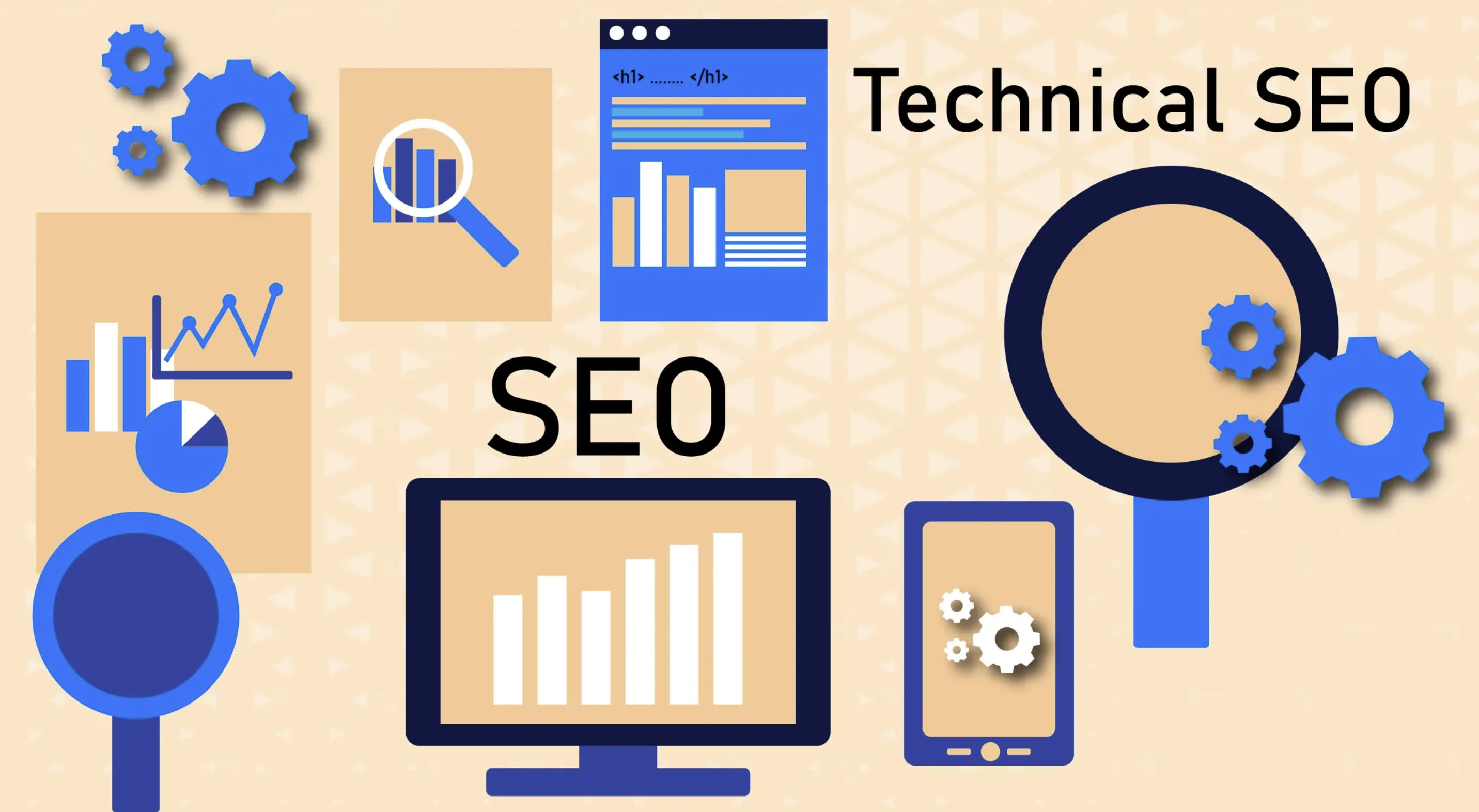White Hat SEO in the Era of AI Search Results: Your Blueprint for Success

In the rapidly evolving landscape of digital marketing, a question frequently arises: "Does SEO still matter with the rise of AI in search?" It's a valid concern, especially as features like Google's AI Overviews become more prominent, offering summarized answers directly at the top of search results. The short answer is a resounding yes, but with a crucial distinction: white hat SEO practices are not just relevant; they are more essential than ever for achieving sustainable success in the era of AI search results.
The perception that AI search might render traditional SEO obsolete is understandable. After all, if an AI can synthesize information and provide a direct answer, why would users click through to a website? However, this perspective misses a critical point: AI systems, particularly those powering search engines, are designed to find, understand, and present the best information available. And what defines "best" in the eyes of AI? Precisely the qualities that white hat SEO has championed for years: quality, relevance, authority, and user experience.
Far from being a threat, the advent of AI in search reinforces the fundamental principles of ethical, user-focused SEO. When you adhere to white hat SEO best practices in 2025, you are inherently optimizing your content and website to appeal to both human users and the sophisticated algorithms that drive AI search, giving your brand the strongest possible chance to appear in these new, prominent features.
Here's a deeper dive into why white hat SEO is not just good, but indispensable for visibility in AI search results:
AI Systems Prioritize Quality and Relevance: The Core of White Hat SEO
At its heart, artificial intelligence in search aims to understand the true context and intent behind a user's query. It's not just matching keywords; it's deciphering what the user really wants to know or achieve. AI models are trained on vast datasets and are designed to favor content that is genuinely helpful, deeply relevant, and inherently authoritative.
White hat SEO, by definition, focuses on creating high-quality, valuable content that directly addresses user needs and questions. This involves thorough research, insightful analysis, and clear, concise writing that provides real solutions. When you produce content that genuinely solves a problem or answers a question comprehensively, you are directly aligning with AI's core directive to provide the best possible information. AI Overviews, for instance, are built upon the premise of summarizing the most pertinent and reliable information, making high-quality, user-centric content a non-negotiable prerequisite.
Structured Data Helps AI Understand Content: Speaking AI's Language
Imagine trying to understand a complex document without any headings, bullet points, or clear sections. That's what unstructured web content can be like for an AI. This is where structured data, implemented through schema markup, becomes incredibly powerful.

Schema markup is a semantic vocabulary of tags (microdata) that you can add to your HTML to improve the way search engines read and represent your page in SERPs. By using schema, you're essentially providing AI with a clear, machine-readable map of your content. You can tell AI, "This is a recipe," "This is a product review," "This is an event," or "This is an FAQ." This explicit labeling helps AI systems understand the context and specific entities within your content with far greater accuracy.
When AI understands your content better, it significantly increases its chances of being featured in rich results like featured snippets, knowledge panels, and, crucially, within AI Overviews. These AI-powered summaries often pull directly from well-structured data, making schema markup a vital tool for direct visibility in the AI search era.
Technical SEO is Crucial for AI Crawlers: The Foundation of Discoverability
While content is king, technical SEO is the kingdom. Even the most brilliant content won't be seen if search engine crawlers (and by extension, AI systems) can't access, read, and understand your website effectively. Technical SEO elements are the unsung heroes that ensure your site is crawlable, indexable, and performs optimally.

Fast page loading times, for instance, are not just about user patience; they're about crawl budget and efficiency. A slow site can deter crawlers, meaning less of your valuable content gets discovered. Similarly, mobile optimization is paramount. With the vast majority of searches now happening on mobile devices, AI systems prioritize sites that offer a seamless mobile experience. A responsive design and mobile-friendly layout ensure that your content is accessible and readable across all devices, which is a strong positive signal for AI algorithms.
Ultimately, robust technical SEO ensures that AI search engines can efficiently crawl, interpret, and process your website's content, laying the essential groundwork for your information to be considered for AI Overviews and other AI-driven features.
E-E-A-T is Essential for Trust and Authority: The Human Touch in AI Search
AI systems are designed to provide users with reliable, trustworthy information. They heavily rely on signals of E-E-A-T – Experience, Expertise, Authoritativeness, and Trustworthiness – to evaluate the credibility and quality of content. This framework, long a cornerstone of white hat SEO, has become even more critical with AI in the mix.
- Experience: Does the content demonstrate firsthand experience or practical knowledge?
- Expertise: Is the content created by someone with demonstrable knowledge in the subject?
- Authoritativeness: Is the website or author a recognized authority on the topic?
- Trustworthiness: Is the information accurate, reliable, and presented transparently?
Building authority through white hat tactics directly addresses E-E-A-T. This includes publishing expert-level content, showcasing author credentials (e.g., bios, qualifications), securing credible backlinks from reputable sources (which act as "votes of confidence" for your authority), and maintaining a transparent, secure website. AI systems are increasingly sophisticated at identifying these signals, making E-E-A-T a non-negotiable factor for achieving and maintaining visibility in AI-powered search results.
Focusing on User Experience Benefits AI Ranking: The Human-Centric Approach
White hat SEO has always advocated for a user-first approach. Websites that provide a great user experience – with intuitive navigation, clear calls to action, fast loading speeds, mobile-friendliness, and engaging content – are favored by both human users and search algorithms.
AI search algorithms are becoming increasingly adept at understanding and valuing user engagement signals. If users spend more time on your site, interact with your content, and find what they're looking for easily, these positive interactions send strong signals to AI systems that your site is valuable and relevant. Conversely, a poor user experience (e.g., slow loading, confusing navigation, intrusive ads) can lead to high bounce rates and negative signals, which AI will interpret as a lack of quality. By prioritizing user experience, you're not just pleasing your audience; you're also optimizing for AI's preference for useful, accessible, and enjoyable web properties.
AI-Generated Content Still Requires Human Expertise: The Indispensable Role of the Human
The rise of generative AI tools has made content creation faster and more scalable than ever before. However, a crucial point often overlooked is that while AI can assist in content creation, raw AI-generated content often lacks the nuanced understanding, unique insights, and genuine E-E-A-T that human expertise provides.
AI search engines are becoming increasingly sophisticated at discerning truly valuable, original content from generic, mass-produced text. For your content to stand out and be deemed authoritative by AI, human editing, fact-checking, and the infusion of unique perspectives and experiences are absolutely crucial. Human oversight ensures accuracy, demonstrates genuine expertise, and adds the "trustworthiness" factor that AI highly values. Relying solely on unedited AI output risks producing content that is perceived as low-quality or unoriginal, hindering its chances of ranking well or appearing in AI Overviews.
SEO and AI Search - The Path Forward
In essence, white hat SEO is not just a set of tactics; it's a philosophy. It's a robust, ethical approach to optimizing your website that focuses on delivering genuine value to users. This user-centric philosophy aligns perfectly with the core objectives of AI-powered search engines, which are designed to understand, evaluate, and present the most helpful, relevant, and trustworthy information.
By investing in white hat SEO – creating high-quality content, implementing structured data, ensuring technical soundness, building E-E-A-T, and prioritizing user experience – you are not just playing by the rules; you are future-proofing your digital presence. These practices lead to sustainable growth, better long-term performance, and ensure that your brand remains visible and authoritative, regardless of how search technology continues to evolve. In the era of AI Overviews and beyond, white hat SEO is not just a strategy; it's your blueprint for enduring success.

